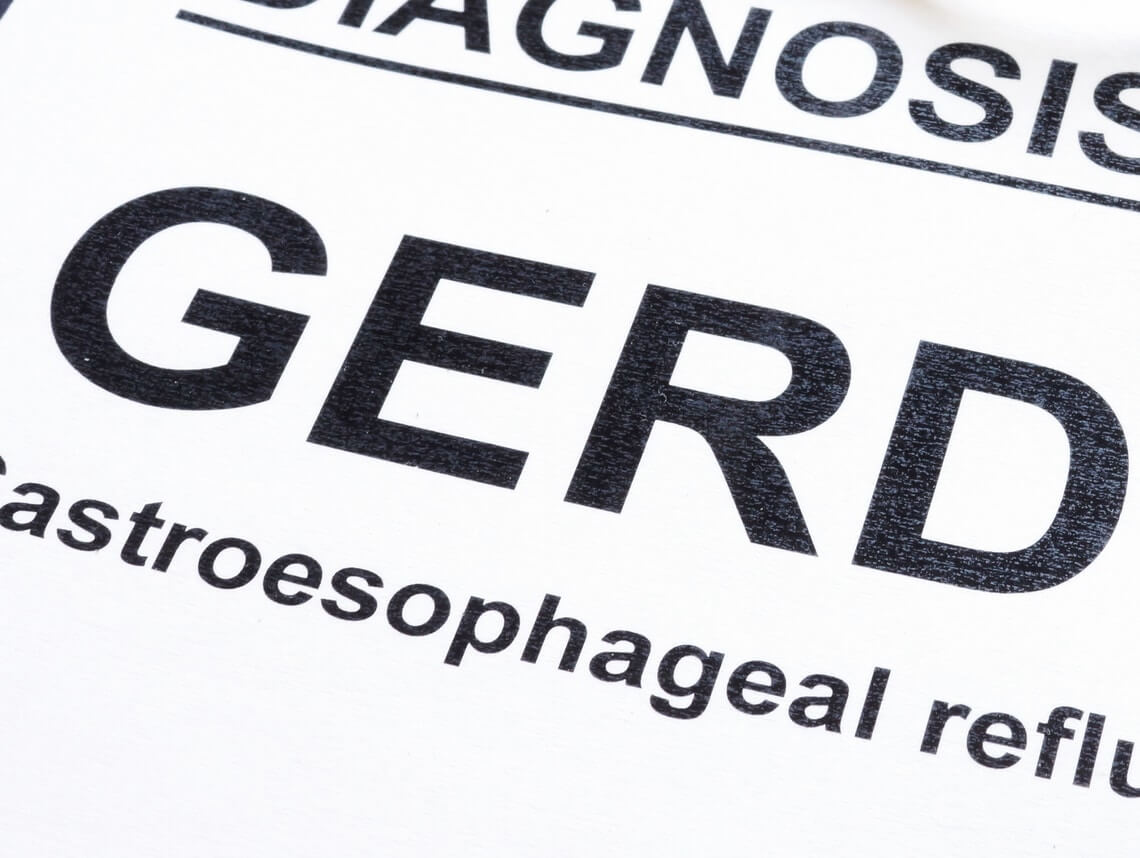
If your child has been diagnosed with gastroesophageal reflux disease (GERD), you may be wondering what, exactly, does it all mean? While it’s common to hear about acid reflux, complaints usually come from adults. This may leave you wondering what are the effects of the condition on children? And, if your child hasn’t been diagnosed, but often experiences certain symptoms after meals, you may be wondering if the cause is acid reflux. If so, how is it diagnosed and what are the treatment options?
What is Gastroesophageal Reflux Disease (GERD)?
Gastroesophageal reflux disease is the medical term for acid reflux. It occurs when fluids inside a person’s stomach flow back up into the esophagus — the tube that connects the throat to the stomach. The stomach opening has a valve (called a sphincter) that opens when you’re eating and closes when you’re done. When a person experiences acid reflux, it’s because this valve remains open when it should be closed. And, in some cases, it can become a chronic issue.
Causes and Risk Factors of GERD
Several circumstances could cause the stomach’s sphincter to open when it should remain closed. The most common ones include:
- Drinking carbonated beverages
- Eating large meals
- Eating deep-fried and/or spicy foods
- Being overweight or obese
- Laying down soon after eating a meal
In addition, certain medical conditions could make GERD more likely, including cerebral palsy, Down syndrome, and muscular dystrophy. That being said, it’s also common for babies to experience GERD throughout their first year of life due to laying down after feedings.
Symptoms of GERD in Children
The symptoms of GERD may vary greatly from one person to the next. Typically, in children, signs of acid reflux include:
- Being fussy at mealtimes
- Burping a lot
- Vomiting often
- Recurring hiccups
- Gagging and/or choking after meals
- Wheezing
- A rattling sound in the chest
- Coughing fits at night
- Ear infections
- Bad breath
If your child is older and able to speak, they may complain about additional symptoms. These may include:
- Stomach pain
- Sore throat in the morning
- A bad taste in the mouth
- Tooth decay
Effects of GERD on Children
Gastroesophageal reflux disease may cause babies to vomit more often, and it may cause children of all ages to experience nutrients malabsorption. In addition, when their stomach fluids move up their esophagus, it could spill into their trachea (windpipe). As a result, your child may end up with pneumonia or asthma. Additional complications of GERD in children include esophagitis (inflammation of the esophagus), anemia, and/or painful sores in the esophagus.
How do you diagnose GERD in children?
GERD can be diagnosed by performing different tests. Your child’s doctor may conduct:
- X-Rays. This is done to verify whether fluids from the stomach have traveled up the esophagus and into your child’s lungs.
- Endoscopy. The doctor checks the inside of your child’s digestive tract by using a small, flexible tube (endoscope) with a light and a camera at the end.
- Esophageal manometry. A thin tube is inserted into your child’s nostril and down their esophagus to measure the pressure of esophageal muscles.
- Barium swallow. This involves your child swallowing a fluid called barium — which coats your child’s organs to make it easier for the doctor to detect ulcers through X-rays.
Treatment Options for GERD in Children
Once GERD has been diagnosed, your doctor will instruct you on how to best care for your child to reduce the likelihood of recurring acid reflux. Treatments vary on the severity and age of your child.
For Babies
- Holding them upright for up to half an hour after meals
- Ensuring the bottle’s nipple is full of milk to prevent air from entering your baby
- Burping your baby more regularly will help reduce acid reflux
For Older Children
- Limit their intake of sodas, fried, and fatty foods
- Serve your child smaller portions (add snacks throughout the day if necessary)
- Serve dinner at least two to three hours before bedtime
Another thing to keep in mind is that if your child is taking medications, the pediatrician may want to review whether they’re having an effect on your child’s digestion. And, if your child is overweight, schedule a consultation with their doctor to create a weight-loss program that’s appropriate for their age.
Contact Care Options for Kids For Pediatric Home Health Care
It can be hard to balance your time between work, home, and caring for a child who has a genetic disorder. Homecare providers offer the support you or your loved one needs.
That’s why our team of skilled professionals at Care Options for Kids are here to help. Our home care services offer support in the comfort of your home. We refer loving and competent caregivers to provide customized care for families – from a few hours a day to around-the-clock supervision. Contact us directly to speak with a home health care professional or request a free in-home assessment. Together we can determine the best plan of action to keep your loved ones happy and healthy.
If you are considering pediatric home health care services, contact the caring staff at Care Options for Kids. Call today at (888) 592-5855.
